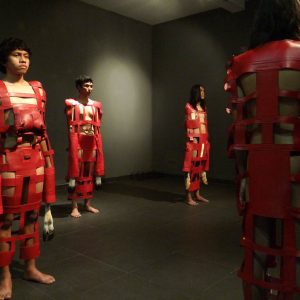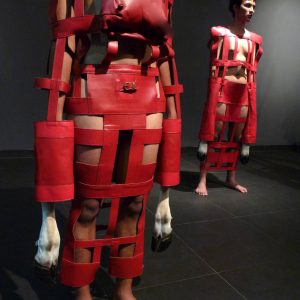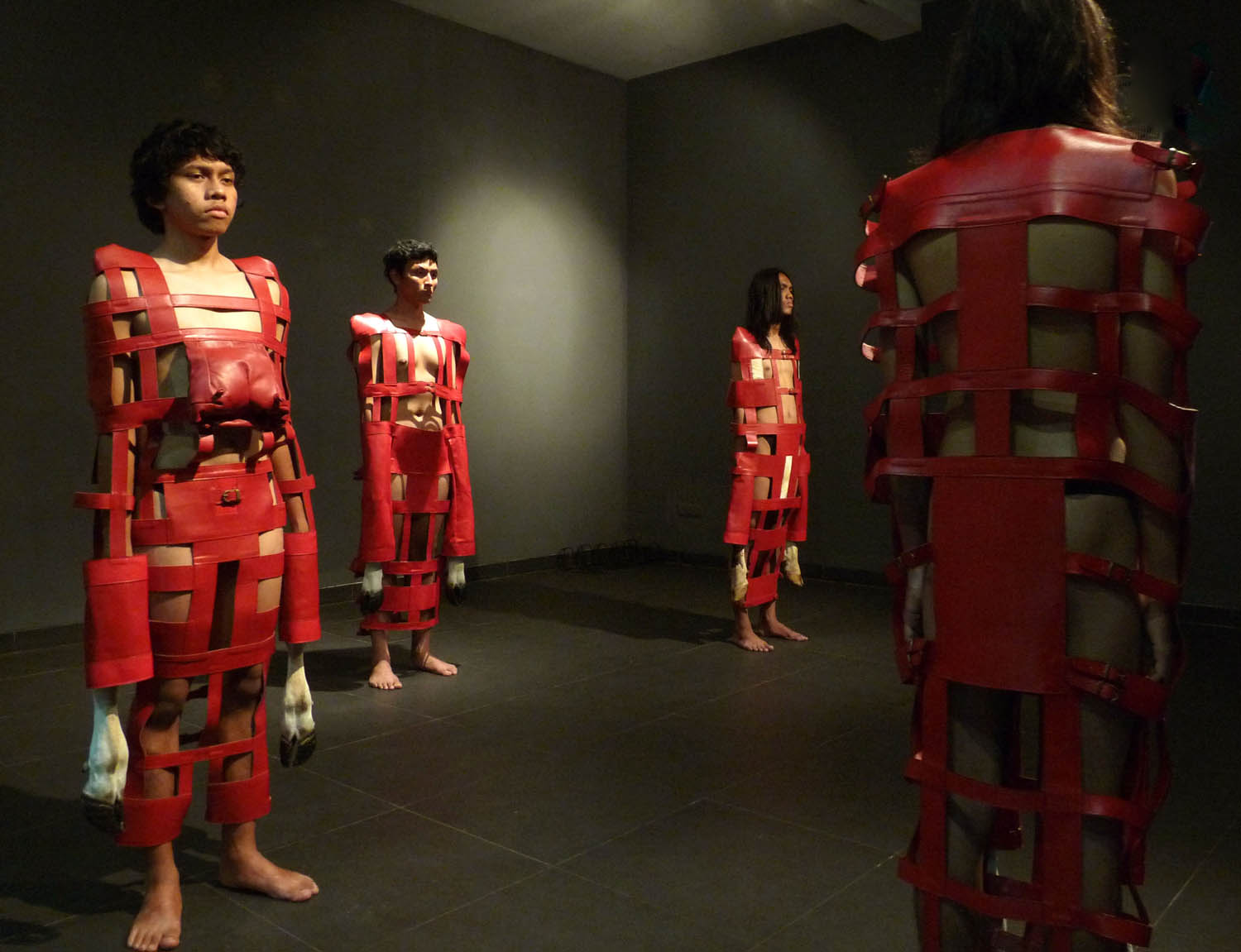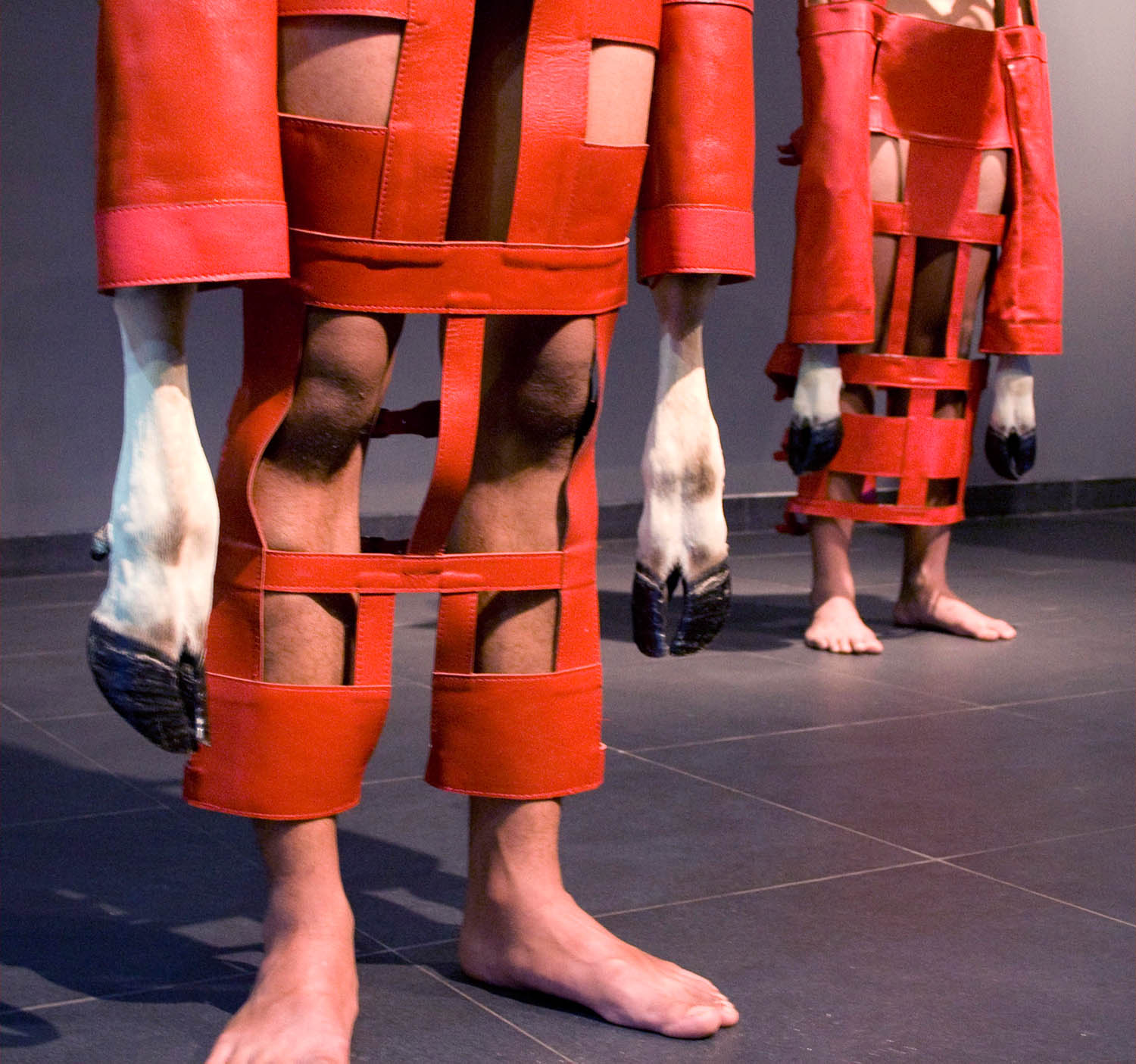Quotes from catalogue by Enin Supriyanto
Published by Lawangwangi ARTsociates, Bandung, January 2013
—Mella’s works start out from the care and sensitivity she applies to her observations of the various social situations around her, or to the observations she has made on dedicated trips. This kind of attention is the anchor that connects the themes of her works with real-world social issues. While concurrently using materials and forms that are unconventional in the visual arts, she constructs new imagery for the bodies present in her works.
…These days, however, most of her attention is directed to matters regarding the senses; the basic and common potential of the human body to know itself and the world around it. These works deliberately bring us to the perennial matters that have been the subject of thought and discussion among thinkers, philosophers, scientists, religious scholars and others: intelligence, reason, human self-awareness. What if the capability of our senses, our human sensory experience – the body’s mainstay in knowing itself and the world – turns out to be easily deceived and deceiving and can no longer be relied upon to lead us to the altar of “truth”.
… Mella began our discussion by quoting a Hindu priest, the Indian thinker Swami Vivekananda (1863-1902): The senses cheat you day and night. (Swami Vivikandanda)
That quote immediately reminded me of René Descartes (1596-1650), the premier empiricist in modern (Western) philosophy. I replied to Mella’s email with the following:
(…) The senses deceive from time to time, and it is prudent never to trust wholly those who have deceived us even once. (Descartes, Meditation on First Philosophy)
How curious that two thinkers separated by centuries, so unlike in their socio-cultural backgrounds, could arrive at a similar line of thinking: that the human senses cannot be depended upon to deliver us to the “Truth”. Certainly, we now know exactly that the statements by these two thinkers flow to different conclusions. Swami Vivekananda followed the line of his thought to arrive at a typically Eastern wisdom: to prescribe self-control over the body and the senses, so that one may be able to reach an “Eternal Truth”. Meanwhile, Descartes prescribed us to examine anything our senses might communicate, by using our reason and logic to arrive at the “Truth”. ..
Link to the full article









